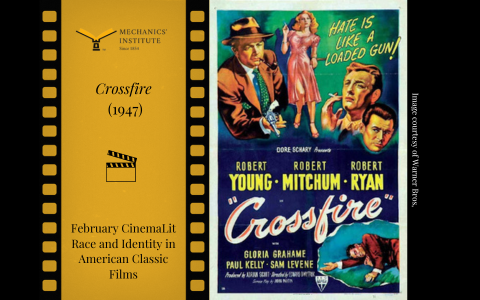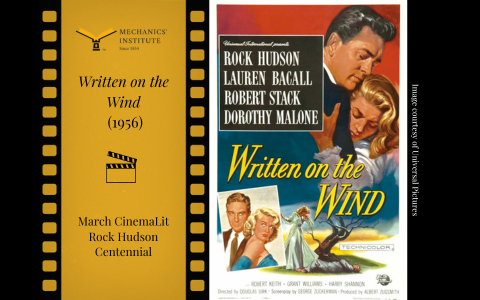Friday, February 14, 2025 - 6:00 pm

February 14 - Guess Who’s Coming to Dinner (1967), 108 minutes, directed by Stanley Kramer, starring Spencer Tracy, Sidney Poitier, and Katharine Hepburn.
During a whirlwind courtship, a young woman brings her fiancé home to meet the parents. But she’s white and he’s black, and her upper middle-class parents’ liberal values are put to the test. Released the same year the Supreme Court struck down the nation’s last anti-miscegenation laws, Guess Who’s Coming to Dinner is rather blatant in its ideology. But it shrewdly combines a feel good message of interracial relationships with old fashioned Hollywood sentiment. This was Spencer Tracy and Katharine Hepburn’s last film together, and their prospective son-in-law was played by Sidney Poitier at his most paragonic. If nothing else, it’s a high pleasure to witness these three towering actors of American cinema share the screen.
Guess Who's Coming to Dinner will be co-hosted by film historian Lara Gabrielle!
February 2025 CinemaLit - Race and Intolerance in American Classic Films
Common knowledge says Hollywood’s history of race is appalling. For decades, stardom was limited to white actors, while actors of color were consigned to supporting roles as butlers, maids, chauffeurs, and nannies. Even films inviting expanded casting, such as The Good Earth (1937) and Dragon Seed (1944), resorted to name actors in yellowface. Mickey Rooney as Mr. Yunioshi in Breakfast at Tiffany’s (1961) badly scars the movie. Birth of a Nation (1914) glorifies the Ku Klux Klan. The list goes on and on. Many a classic film, Gone with the Wind (1939) most famously, are marred by stereotypes that read poorly with today’s audiences.
Within this legacy are a handful of films that offered a vision beyond cinematic racist shorthand. While not all of the films completely escape the entrenched prejudices of their day, they allowed for complex stories and thoughtful performances from marginalized actors and laid the groundwork for more nuanced and ambitious storytelling. February at CinemaLit is devoted to four of these influential films, now recognized as landmarks in the history of race and racism in Hollywood. Join us for Intruder in the Dust (1949), Guess Who’s Coming to Dinner (1967), Crossfire (1947), and Broken Arrow (1950).
 Matthew Kennedy, CinemaLit’s curator, has written biographies of Marie Dressler, Joan Blondell, and Edmund Goulding. His book Roadshow! The Fall of Film Musicals in the 1960s, was the basis of a film series on Turner Classic Movies. His most recent book, On Elizabeth Taylor: An Opinionated Guide, examines the screen legend's entire career.
Matthew Kennedy, CinemaLit’s curator, has written biographies of Marie Dressler, Joan Blondell, and Edmund Goulding. His book Roadshow! The Fall of Film Musicals in the 1960s, was the basis of a film series on Turner Classic Movies. His most recent book, On Elizabeth Taylor: An Opinionated Guide, examines the screen legend's entire career.
“I don't have a favorite film,” Matthew says. "I find that my relationships to films, actors, genres, and directors change as I change over the years. Some don't hold up. Some look more profound, as though I've caught up with their artistry. I feel that way about Garbo, Cary Grant, director John Cassavetes, and others."
“Classic films have historical context, something only time can provide,” Matt observes. “They become these great cultural artifacts, so revealing of tastes, attitudes, and assumptions.”
Cafe opens at 5:30 pm with wine, beer, sparkling water, juice, and fresh-popped popcorn for sale.
Register with Eventbrite below.
Please note: Photos and/or video may be taken during this event.
CinemaLit Films






